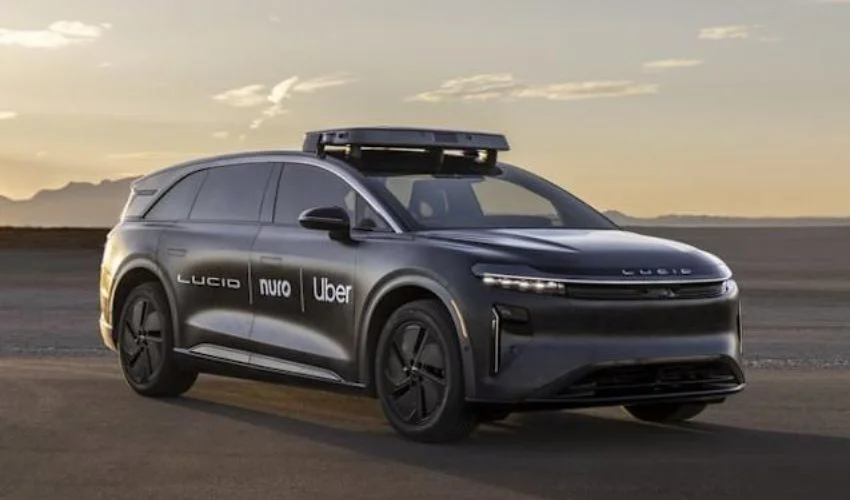Silicon Valley startup Lyten has stepped into the spotlight with a bold attempt to succeed where Sweden’s Northvolt failed. By acquiring the bankrupt EV battery maker’s assets, Lyten aims to position itself as a potential European champion in electric vehicle batteries, a sector critical for reducing the region’s dependence on China.
From Northvolt’s Collapse to Lyten’s Gamble
Northvolt, once hailed as Europe’s answer to Asian battery dominance, collapsed earlier this year under $8 billion in debt after losing investor confidence, failing to meet production targets, and missing crucial orders. Its demise left Europe’s hopes of a self-sufficient EV battery industry in question. Lyten’s acquisition of Northvolt’s assets on August 7 came as a surprise, offering a potential lifeline to Europe’s battery production efforts.
While the terms of the deal remain undisclosed, Lyten confirmed that it had purchased Northvolt’s assets at a “substantial discount,” fully funded by private equity investors. The company plans further capital raises and intends to tap into European grant programs such as the EU’s battery booster package.
Lithium-Sulfur: A New Frontier
Lyten’s focus is not solely on lithium-ion production inherited from Northvolt. Its primary ambition lies in developing lithium-sulfur batteries, a next-generation chemistry touted for being lighter, lower-cost, and less dependent on critical minerals from China. Currently, Lyten produces these cells at a pilot plant in Silicon Valley but aims to scale operations rapidly with Northvolt’s facilities.
According to CEO Dan Cook, the acquisition could accelerate large-scale lithium-sulfur EV battery production to 2028, ahead of earlier forecasts that placed commercialization at the decade’s end. However, industry experts caution that lithium-sulfur may not be viable for mass-market cars before 2030 due to technical hurdles around cycle life and stability.
Winning Over Cautious Carmakers
Despite its ambitions, Lyten faces the daunting task of convincing carmakers and investors wary of another Northvolt-like collapse. Customers such as Volkswagen, Volvo, and Scania, once aligned with Northvolt, remain reluctant to commit until Lyten proves it can deliver consistent quality at scale.
Stellantis, which owns a 2% stake in Lyten, has been testing applications of its technology since 2023. A spokesperson for the automaker emphasized that any supply deals would hinge on technical validation, industrial scale-up, and local production capacity. Similarly, BMW, which previously canceled a €2 billion order with Northvolt, has expressed interest in a sustainable European supplier but insists that agreements require a long lead time.
The Valley of Death Challenge
Lyten’s takeover provides it with access to advanced production and research facilities, including what former Northvolt executives described as one of the most advanced battery research centers in Europe. Still, the startup must navigate what experts call the “valley of death”—a period of unprofitable production before reaching economies of scale.
Emma Nehrenheim, head of the European Battery Alliance, noted that it could take over five years and substantial government subsidies for European battery makers to compete with Asia. China, for instance, spent nearly two decades and more than $150 billion to achieve its current dominance. Without sustained financial and political support, Lyten risks repeating Northvolt’s struggles.
Competition in the Global Battery Race
Lyten is far from alone in the race to develop next-generation EV batteries. Germany’s Theion, Australia’s Gelion, and U.S.-based Zeta Energy are also pursuing lithium-sulfur technology. Meanwhile, Chinese giants such as CATL are advancing semi-solid and solid-state chemistries, which are further along in development and closer to commercial readiness.
Lyten’s Chief Sustainability Officer Keith Norman expressed optimism, stating that the company has already been working with automaker partners for two years on testing lithium-sulfur technology. By linking Silicon Valley’s research expertise with Northvolt’s European facilities, Lyten hopes to accelerate innovation and surprise the market with its pace of development.
Investor Backing and Industry Skepticism
Lyten’s financial model relies heavily on private equity and high-net-worth investors. CEO Dan Cook said the company is building syndicates of investors to sustain funding needs, a critical factor as it attempts industrial scale-up. However, analysts highlight that unlike Northvolt, which once boasted a $50 billion order book, Lyten currently lacks major supply contracts to guarantee long-term revenue.
Industry experts argue that while Lyten’s acquisition rekindles Europe’s hopes, its ultimate success depends on bridging the gap between laboratory innovation and industrial-scale production—a hurdle that has challenged battery startups worldwide.
Topics #life lesson #Lyten Iithium-sulfur : batteries Lyten’s Bold Move to Revive Europe’s EV Battery Ambitions #trending pakistan




